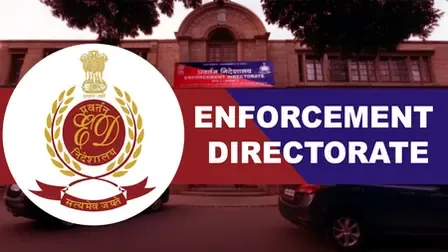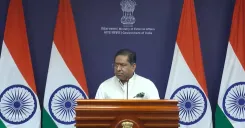Did Assam Police STF Successfully Dismantle a Wildlife Trafficking Network?

Synopsis
Key Takeaways
- Assam Police STF arrests two wildlife traffickers.
- Operation conducted based on specific intelligence.
- Confiscated items include protected wildlife species.
- Legal proceedings initiated under wildlife protection laws.
- Continued investigations to uncover trafficking networks.
Guwahati, Nov 7 (NationPress) In a significant operation against wildlife trafficking, a squad from the Special Task Force (STF) of Assam Police apprehended two individuals purportedly engaged in the unlawful smuggling of endangered species, as disclosed by officials on Friday.
The STF successfully confiscated a variety of protected wildlife species and their body parts from the suspects' possession.
An official spokesperson for Assam Police indicated that during a critical operation targeting wildlife traffickers, a team from the STF intercepted two suspects involved in the illicit smuggling of endangered species in the Jakhalabandha region of Nagaon district during the late hours of Thursday and early hours of Friday.
Following actionable intelligence and with backing from the Wildlife Crime Control (WCC) authority, the STF initiated an operation in the Kuthori area, falling under the jurisdiction of Jakhalabandha Police Station on Thursday.
During this operation, the STF team stopped two suspects on a Honda Glamour motorcycle near a local playground and seized various protected wildlife species and their bodily parts.
The apprehended suspects have been identified as Bidya Singnar (30) and Samson Kathar (29), both of whom reside in the Rongmongve area of Karbi Anglong district.
Items recovered from their possession included six Tokay Geckos (locally referred to as Keko Khap), one live Slow Loris (Lajuki Bandor), Pangolin scales weighing 10.630 kilograms, a Honda Glamour motorcycle, and two mobile phones with active SIM cards.
The detained individuals were subsequently transferred by the STF and WCC team to Jakhalabandha Police Station after filing an FIR. Legal actions have commenced under the appropriate provisions of the Bharatiya Nyaya Sanhita (BNS) and the Wildlife (Protection) Act, 1972, according to the police spokesperson.
Initial investigations suggest that the confiscated wildlife species and their components were intended for trafficking to international markets, where these items are in considerable demand for illegal trade, he noted.
Officials suspect that the protected wildlife species and their body parts, particularly the Pangolin scales, were illicitly sourced from the Kaziranga National Park and Tiger Reserve (KNPTR) — recognized as India’s seventh UNESCO World Heritage Site.
Further investigations are ongoing.









